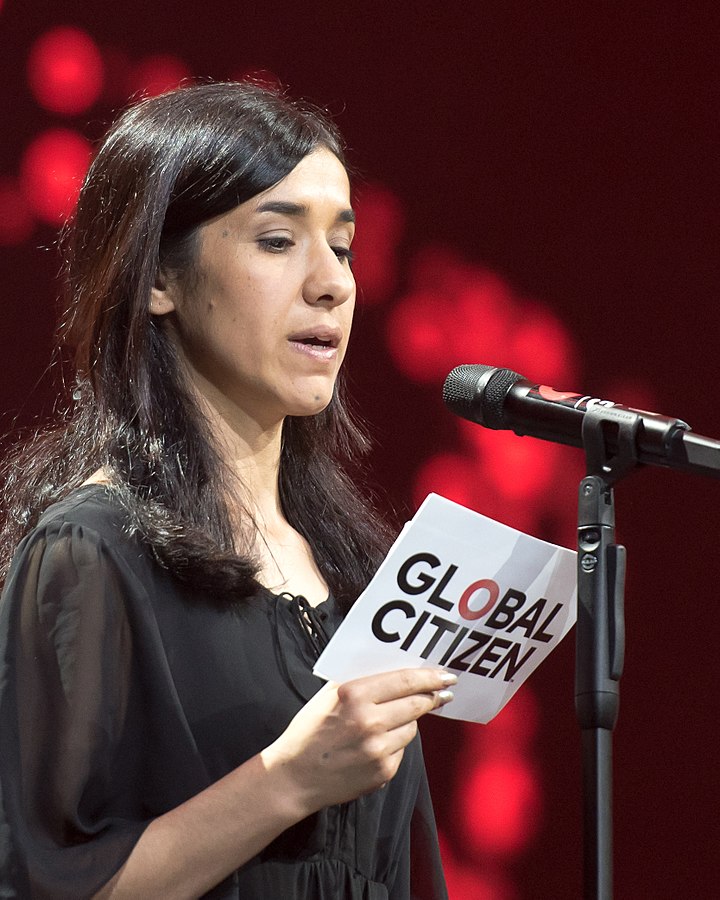
Human trafficking is on the rise and it is more “horrific” than ever, a United Nations agency found.
In a new report examining patterns in human trafficking, the U.N. Office on Drugs and Crime (UNODC) found that the global trend has increased steadily since 2010 around the world.
“Human trafficking has taken on horrific dimensions as armed groups and terrorists use it to spread fear and gain victims to offer as incentives to recruit new fighters,” said UNODC’s Executive Director Yury Fedotov.
Asia and the Americas saw the largest increase in identified victims but the report notes that this may also reflect an improved capacity to identify and report data on trafficking.
Women and girls are especially vulnerable, making up 70 percent of detected victims worldwide. While they are mainly adult women, girls are increasingly targeted by traffickers.
According to the 2018 Global Report on Trafficking in Persons, girls account for 23 percent of all trafficking victims, up from 21 percent in 2014 and 10 percent in 2004.
UNODC also highlighted that conflict has increased the vulnerability of such populations to trafficking as armed groups were found to use the practice to finance activities or increase troops.
Activist and U.N. Goodwill Ambassador Nadia Murad was among thousands of Yazidi women and girls who was abducted from her village and sold into sexual slavery by the Islamic State (IS) in Iraq, a tactic used in order to boost recruitment and reward soldiers.
Murad recently received the 2018 Nobel Peace Prize, dedicating it to survivors of sexual violence and genocide.
“Survivors deserve a safe and secure pathway home or safe passage elsewhere. We must support efforts to focus on humanity, and overcome political and cultural divisions. We must not only imagine a better future for women, children and persecuted minorities, we must work consistently to make it happen – prioritizing humanity, not war,” she said.
“The fact remains that the only prize in the world that can restore our dignity is justice and the prosecution of criminals,” Murad added.
Sexual exploitation continues to be the main purpose for trafficking, account for almost 60 percent, while forced labor accounts for approximately 34 percent of all identified cases.
Three-quarters of all female victims are trafficked for sexual exploitation globally.
The report also found for the first time that the majority of trafficked victims are trafficked within their own countries of citizenship.
The share of identified domestic victims has more than doubled from 27 percent in 2010 to 58 percent in 2016.
This may be due to improved border controls at borders preventing cross-border trafficking as well as a greater awareness of the different forms of trafficking, the report notes.
However, convictions have only recently started to grow and in many countries, conviction rates still remain worryingly low.
In Europe, conviction rates have dropped from 988 traffickers convicted in 2011 to 742 people in 2016.
During that same time period, the number of detected victims increased from 4,248 to 4,429.
There also continue to be gaps in knowledge and information, particularly in certain parts of Africa, Middle East, and East Asia which still lack sufficient capacity to record and share data on human trafficking.
“This report shows that we need to step up technical assistance and strengthen cooperation, to support all countries to protect victims and bring criminals to justice, and achieve the Sustainable Development Goals,” Fedotov said at the report’s launch.
Adopted in 2015, the landmark SDGs include ambitious targets including the SDG target 16.2 which calls on member states to end abuse, exploitation, trafficking and all forms of violence and torture against children.
SDG indicator 16.2.2 asks member states to measure the number of victims of human trafficking per 100,000 population and disaggregated by sex, age, and form of exploitation, reflecting the importance of improving data recording, collection, and dissemination.
“The international community needs to…stop human trafficking in conflict situations and in all our societies where this terrible crime continues to operate in the shadows,” Fedotov said.
“I urge the international community to heed Nadia [Murad]’s call for justice,” he added.
